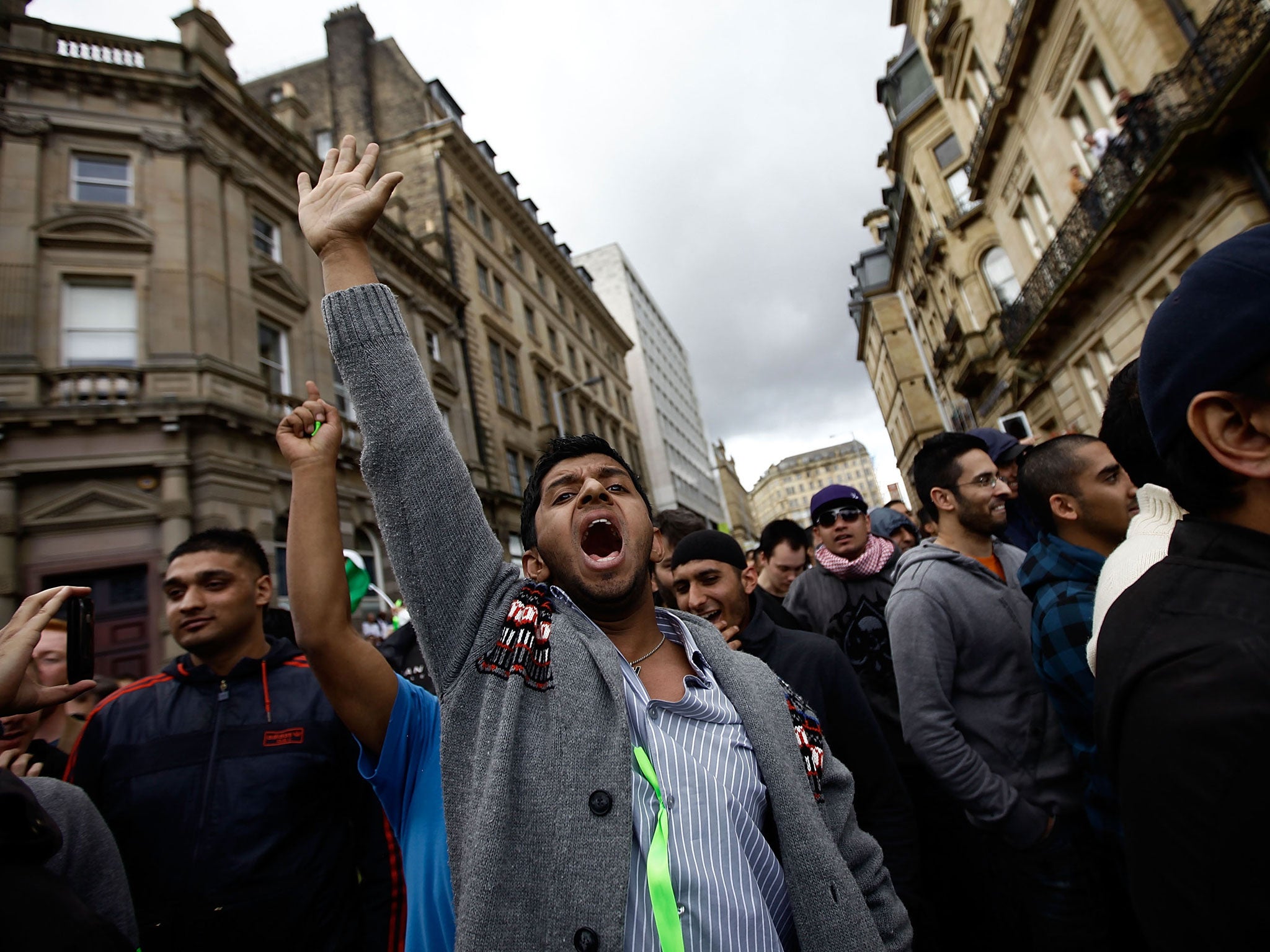Dreams of League Cup glory give battling Bradford an escape from tough times at home
Ian Herbert on a club from English professional football’s lowest tier which hopes to bring success to a city torn by conflict

Your support helps us to tell the story
This election is still a dead heat, according to most polls. In a fight with such wafer-thin margins, we need reporters on the ground talking to the people Trump and Harris are courting. Your support allows us to keep sending journalists to the story.
The Independent is trusted by 27 million Americans from across the entire political spectrum every month. Unlike many other quality news outlets, we choose not to lock you out of our reporting and analysis with paywalls. But quality journalism must still be paid for.
Help us keep bring these critical stories to light. Your support makes all the difference.
“I’m on a day off,” said Mick Shackleton, just in case anyone might ask what he was doing there yesterday morning, in temperatures just above zero, to wave off the Bradford City football team on their way to London from the club’s stadium.
In truth, even those Bradfordians who made it to the office were there in body, but not in spirit, as the city awaited the club’s League Cup final appearance against Swansea City at Wembley, on Sunday.
Simply getting to the final is a significant piece of history given that the Bantams, whose claret and amber colours resemble that branch of the poultry family, are in the fourth tier of professional football. Such lowly placed football teams the world over have not established a habit of doing that.
The only side from a similar obscure level to have won a football cup trophy anywhere in the world, in fact, was the Sri Lankan Navy in 2010, although they arguably do not count since they were a side of top-division calibre, only playing in Sri Lanka’s fourth tier that season having withdrawn from the top division “due to fighting commitments.”
The only clubs to have reached a comparable final have been Rochdale in 1962 in the same competition, and Calais, who lost to Nantes in the 2000 French Cup final.
Bradford certainly needs the good news. The city has struggled economically in the past few years, with unemployment rising to around 33 per cent in the west side of the city.
Barclays Bank declared that Bradford, to which we must give thanks for JB Priestley and Frederick Delius, was “ready to explode” when it opened a new city centre branch last year. We’re still waiting for that event. And though the place has moved on from the Manningham race riots of 2001, the club’s fortunes have mirrored the economy. There have been three relegations and two periods of financial administration in the past 11 years. At the turn of the millennium, the club were in the Premier League.
The new side is managed by the impressive 45-year-old Phil Parkinson, whose Open University degree in social sciences aids his analytical streak, and has brought cheer. They are certainly a rag-tag bunch, assembled on a shoestring by Parkinson last summer, and all with something to prove on the big Wembley stage, where the club’s 31,000 ticket allocation has sold out.
There is Zavon Hines, the Jamaican striker who has plunged from the England under-21 ranks to football’s bottom tier, having been plagued by injury and insecurity. There is James Hanson, the ex-Co-operative supermarket shelf-stacker and scorer in the decisive semi-final match at Aston Villa, where he played with a broken toe. And there is the 22-year-old Bermudian forward Nakhi Wells, whose goal in the first leg against Villa boosted his staunch belief that he is destined to play in the Premier League one day.
In the backdrop is the muted tragedy that the club has been carrying ever since 56 of its fans were killed in a fire at the stadium 28 years ago.
Many locals remember where they were that May afternoon, including retired social worker Stewart Main – who saw the smoke from the cricket field where he was playing. “You must point out that good flowed from the tragedy,” Mr Main insisted. “Bradford established a very fine burns unit because of it.”
The players have had badges bearing the number ‘56’ woven into their tracksuits for Wembley. Ahead is a day to remember and, whatever the outcome, a day to rejoice.
Subscribe to Independent Premium to bookmark this article
Want to bookmark your favourite articles and stories to read or reference later? Start your Independent Premium subscription today.
Join our commenting forum
Join thought-provoking conversations, follow other Independent readers and see their replies
Comments